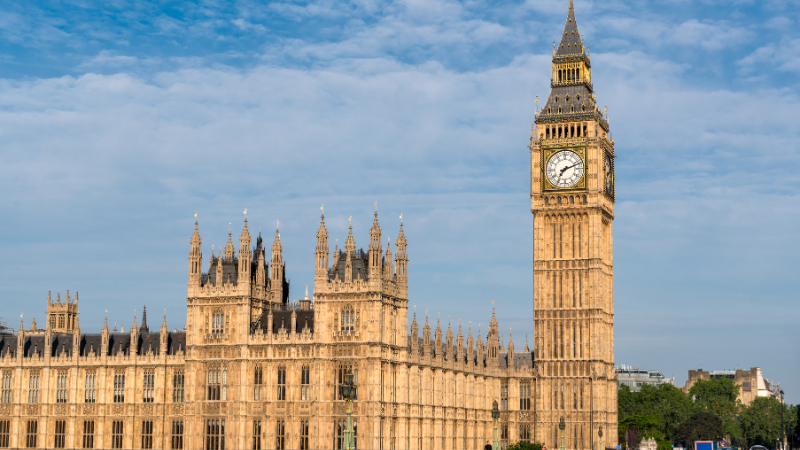Categories
Autumn Budget Summary 2025: Biggest Impacts on the Property Market

After all the Budget rumours leaving the property market in suspense for months, in the end we found out by surprise what’s really coming for buyers and investors.
Would the Chancellor scrap Stamp Duty, remove Capital Gains Tax relief on main homes, and introduce a Mansion Tax?
A dramatic last-minute leak by the Office of Budget Responsibility (OBR) saw key changes splashed before Rachel Reeves even took to the dispatch box to deliver her decisions.
Our essential Autumn Budget Summary outlines the biggest impacts these decisions will have on property buying and investing.
Key Takeaways
For most property buyers and investors there are four key takeaways from this Autumn Budget which may directly affect their homes and investments.
- Mansion Tax: a new surcharge on residential properties valued at more than £2m
- Property Income Taxes: a 2% increase in tax payable on profits from rental property
- Business Rates: low rates for smaller businesses, higher for larger premises
- Tourist Tax: payable by tourists across England on overnight holiday let stays
1. Mansion Tax
A mansion tax, otherwise known as a High Value Council Tax Surcharge, is to be levied on owners of properties worth more than £2m. It will start in April 2028, collected alongside Council Tax.
Properties potentially liable for Mansion Tax will be identified and their value determined by new valuations carried out by the Valuation Office. The valuation will reflect a property’s value in 2026.
This new surcharge will raise more than £400m by 2031, the Chancellor says, and will be charged on fewer than the top 1 per cent of properties.
Unlike Council Tax, the new tax will be paid to central government, rather than local authorities.
There will be four price bands:
- Price bands start with an annual charge of £2,500 for properties worth £2m to £2.5m
- Properties worth £2.5m to £3.5m pay £3,500
- Properties worth £3.5m to £5m pay £5,000
- Properties worth more than £5,000 pay £7,500
Critics say these new valuations will be contentious. Anyone seeking a mortgage or re-mortgage on a property valued near the thresholds of these price bands may find themselves mired in appeals and re-valuations.
What Does This Mean for Buyers?
Buyers may think twice before taking on a high-value property attracting Mansion Tax. Liability for Mansion Tax will impact mortgage affordability tests, so potential buyers may struggle to obtain finance.
Buyers may also decide that their household budget simply couldn’t stretch to paying Mansion Tax on top of other bills, and look elsewhere.
Mansion Tax critics point out that in family-friendly, affluent parts of London, even quite modest terraced homes can be worth more than £2m – hardly mansions.
However, buyers may find bargains. Sellers could slash asking prices to under the £2m mark to attract interest.
Attractive homes just below the £2m threshold are likely to be in higher demand. So buyers may find themselves fighting over the best properties at this price point.
Although Mansion Tax will affect only a tiny fraction of properties, the fear is it could lead to slowdown throughout the market, from first-time buyers upwards.
What Does This Mean for Investors?
Unlike Council Tax, the new Mansion Tax will be levied on owners, rather than tenants. This is bad news for investors who have high-value property in their portfolios.
It’s expected that rents in this sector of the market will see an increase to help landlords already bearing the brunt of recent punitive measures. This includes changes to Stamp Duty and Mortgage Interest Relief which have increased landlord costs and hit profits.
2. Property Income Taxes
Landlords are directly targeted with a 2% rise on the tax payable on property income. This is part of a raft of increases on taxes on assets and also includes savings and dividend income.
The Chancellor’s thinking is that people with income from property, savings or dividends pay less tax than those whose income comes from employment or self-employment. This is because they pay no National Insurance contributions on such income.
The tax rise is scheduled to arrive in April 2027. The Chancellor estimates it will raise £500 million per year from 2028/29.
- Basic rate tax-paying landlords will see rental income taxed at 22%, up from 20%
- Higher rate tax-paying landlords will have rental income taxed at 42% per cent, up from 40%
- Additional-rate taxpayers will be taxed at 47%, up from 45%
- Income tax ordering rules are also changing. An individual’s personal allowance will be deducted against employment, trading or pension income first. So a basic rate taxpayer will see their personal allowance cancel out employment, trading or pension income, chargeable at 20% first, then their property income will be chargeable at 22%
What Does This Mean for Buyers?
This increase to landlord property tax could mean good news for buyers. Investors facing yet another rising cost may decide to offload their properties and sell up.
More properties coming on the market, especially in popular locations, could lead to wider choice and potentially, a drop in asking prices for buyers.
What Does This Mean for Investors?
Investors who have bought their property with a mortgage will be most impacted by the tax rise, as their outgoings are already higher.
All landlords are likely to raise rents to cover the increased cost. However, if large numbers of under-pressure landlords decide to sell their properties, reduced supply will increase tenant demand. This may lead to landlords asking for even higher rents on properties that are still available.
Investing, or moving existing properties, within a limited company structure means not only mitigating these new tax increases in the Budget, but could bring other savings too. These include exemption from the Council Tax premium levied on additional properties, and the ability to fully offset all mortgage interest against rental income before paying tax.
Portfolio landlords may also be motivated to explore refinancing and consolidating existing mortgages across their properties, to potentially find a better rate and at least partially offset the 2% tax rise.
3. Business Rates
Business rates for around 750,000 retail, hospitality and leisure properties will be “permanently lower” the Chancellor promised, paid for by a surcharge on larger premises.
During the Covid pandemic business rates were slashed by 100 per cent for the 2020-21 financial year in a bid to keep High Street businesses afloat.
This full reduction has been gradually tapering off and currently stands at 40%.
However, from 2026/27, the following rates will apply:
- A 20% discount for the smallest properties, with a rateable value of up to £51,000
- A 10% discount for properties with a rateable value between £51,000 and £500,000
- A high-value business rates multiplier, 50.8p in 2026-27, 2.8p above the standard rate, will be levied on business premises with a rateable value of more than £500,000
What Does This Mean for Buyers?
Changes to business rates have negligible impact on buyers. However, it’s true to say that residential locations next to thriving High Streets are more attractive than those with boarded-up shops, restaurants and pubs.
So potentially, buyers could face higher prices being demanded for residential properties bordering such bustling thoroughfares.
What Does This Mean for Investors?
The answer depends on the investment. The permanent discount on business rates for smaller premises could incentivise commercial property investors to take advantage and pursue attractive retail, hospitality, and leisure opportunities.
Arguably, the business rates discount could be used as leverage to demand higher rents from tenants.
However, commercial property investors with large logistics warehouses and prime site office accommodation, for example, are less favoured by the Budget changes. Operational costs will rise. Also, potentially, the rental value and investment value of such sites could be affected.
4. Tourist Tax
The Autumn Budget has confirmed that anywhere in England will soon be able to levy a tourist tax to generate funds for local investment in transport, infrastructure, and the tourism economy.
It’s a tax that’s already active around the world. Venice, one of the first cities to charge tourist tax, started the levy (currently between €1 and €5 per person a night, depending on level of accommodation, for the first five nights of a stay) in 2011.
It’s already confirmed that Mayors in London, Liverpool, Greater Manchester, the West of England, West Yorkshire, York and North Yorkshire and North East England will take advantage of this new tax.
The bill that will grant local government these powers, the English Devolution and Community Empowerment Bill, is currently going through parliament.
- The tax will be payable by tourists and visitors who stay overnight in paid accommodation, including hotels, B&Bs and holiday lets
- A consultation with businesses and other stakeholders will run until February 2026 to establish likely charges
- These charges are likely to be only a few pounds per night. They will either be levied as a flat nightly fee or a percentage of the overall cost of the stay
What Does This Mean for Buyers?
Tourist tax would have little impact on buyers. Although in the long run, if investors find the tourist tax is significantly impacting the holiday let market, they might decide to sell, freeing up more properties for residential owners.
What Does This Mean for Investors?
It’s a little early to tell. Critics say tourist taxes will deter UK tourism. This could potentially lead to a drop off in demand for all accommodation, including holiday lets owned by private investors.
Meanwhile, such investors argue that whilst they put their own money into ensuring their holiday properties are of good standard and continue to meet the demands of onerous legislation and regulation, they will personally see no benefit from the tourist tax.
Tourist tax is essentially local. In the long term, it could lead to competitiveness between locations. This may lead to market uncertainty and shifts in consumer behaviour, which could have a significant impact on the holiday let industry in certain areas.
Get Expert Guidance from Clifton Private Finance
At Clifton Private Finance, we can help you navigate the property market now that the impact of the Autumn Budget is clear. We can provide expert advice on the best mortgages, bridging loans, and commercial property finance available.
Our fully independent, whole-of-market brokers are able to advise you towards the best solution for your circumstances. Whether you’re a residential buyer looking to enter the market now the dust has settled, or a portfolio landlord looking to consolidate in light of the announcement.









